
Join us for an exciting line-up of speakers at ESHRE 2017 – 4th July
Throughout the show, we have scheduled live talks from key opinion leaders, who are experts in their respective fields of IVF and genomics. You will have the opportunity to discover new insights, ask the speakers questions and involve yourself in current discussions.
| Time | Talk Title | Speaker |
|---|---|---|
| 09:30-09:45 | Differences in Chromosome Abnormalities Between Centers |
Dr Santiago Munné Chief Scientific Officer, CooperGenomicsSM |
| 09:45-10:00 | Mosaicism: It is better to know | Dr Michael Large Director of Genomic Labs, CooperGenomics |
| 13:00-13:15 | The use of Next Generation Sequencing for translocation carrier preimplantation diagnosis: The CooperGenomics experience | Tony Gordon, Laboratory Director & Managing Director, CooperGenomics |
| 13:15-13:30 | 8-Year Snapshot of Insightful Data using RI Witness™: A Necessity for your Lab | Dr Stephen Troup Scientific Director, IVI UK |
| 13:30-13:45 | Collecting Eggs & Transferring Embryos: Past, Present & Future |
Professor Charles Kingsland Consultant Gynecologist, IVI, UK |
| 16:30-16:45 | Advancements in NIPT: Current Status & Future Direction |
Dr Josh Blazek Director of Engineering, CooperGenomics |
If you would like to ask the speakers questions, there will be five-minute roving mike session at the end of each talk.
Find us on our speaker stand A16
Speaker Biographies
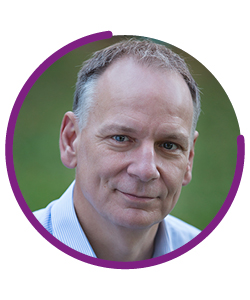
Speaker: Dr Santiago Munné, Chief Scientific Officer, CooperGenomics
Talk Title: Differences in Chromosome Abnormalities Between Centers
Dates/Times: Tuesday 4th July 09:30-09:45
Originally from Barcelona, Dr Santiago Munné gained his PhD in Genetics from the University of Pittsburgh. In 1991, he joined Dr Jacques Cohen at the Cornell University Medical College located in New York City.
It was at Cornell, he developed the first Preimplantation Genetic Screening (PGS) test to detect chromosome abnormalities, which resulted in the first PGS babies in 1993. For this work he received prizes in 1994 and 1995 by The Society for Assisted Reproductive Technology (SART).
In 2001, Dr Munné co-founded Reprogenetics, with Jacques Cohen and David Sable. He oversaw its expansion to four continents. Reprogenetics was the first commercial lab to offer PGS and PGD and was the market leader until it was sold in 2015 to the Cooper Companies (NYSE: COO).
In 2011, Santiago co-founded with Alex Bisignano the genomics company, Recombine. Its first test, CarrierMap screened for over 300 gene defects, allowing carrier couples to conceive unaffected children through PGD testing. Following the purchase of Reprogenetics, Recombine and Genesis Genetics in 2016, by the Cooper Companies, he became the Chief Scientific Officer of Genomics for their CooperSurgical group.
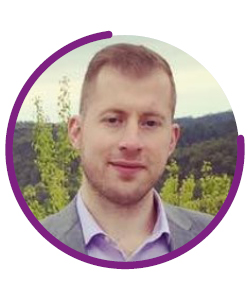
Speaker: Dr Michael Large, Director of Genomic Laboratories, CooperGenomics
Talk Title: Mosaicism: It is better to know
Dates/Times: Tuesday 4th July 09:45-10:00
Dr Michael Large was born and raised in Southeast Wisconsin. He earned is Baccalaureate of Science in Cell and Molecular Biology from the University of Wisconsin, La Crosse.
Dr Large was awarded the Dean’s Distinguished Fellowship for a project investigating gonad development in Caenorhabditis Elegans, using in vivo RNA interference. He then went on to join Bert O’Malley’s Molecular and Cellular Biology program at Baylor College of Medicine, where he earned his PhD with Franco DeMayo.
Mike’s graduate work focused on the intersection of progesterone and growth factor signaling, and their role in endometrial receptivity. While finishing his work there, he was recruited by Mark Hughes of Genesis Genetics to open a research and development PGS laboratory in Houston, Texas.
Mike quickly rose to prominence as a technical expert and was instrumental in the adoption and implementation of next generation sequencing in Genesis Genetics labs across the world. Shortly after being acquired by the Cooper Companies, he was promoted to Director of Genomic Laboratories in the newly formed business unit, CooperGenomics.
He continues to passionately invest in advancing preimplantation genomics as a commitment to help people attain happy and healthy families.
Synopsis: The phenomena of embryo mosaicism, or the presence of multiple genetically distinct populations, has caused quite a stir within the ART community over the last few years. In his talk, Dr Mike Large will start with a brief explanation of what the state-of-the-art PGS technologies are capable of detecting.
With that foundation, he’ll describe the incidence and types of mosaicism observed during routine PGS. Next, the extent to which mosaicism in a single trophectoderm biopsy correlates with the rest of the embryo will be discussed. The talk will conclude on the pregnancy potential of mosaic embryos as evidenced by the outcome of mosaic embryo transfers.
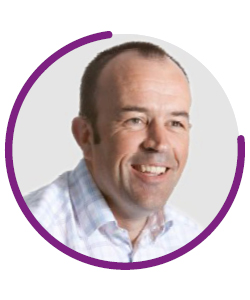
Speaker: Tony Gordon, Laboratory Director and Managing Director, CooperGenomics
Talk Title: The use of Next Generation Sequencing for translocation carrier preimplantation diagnosis: The CooperGenomics experience
Date/Time: Tuesday 4th July, 13:00-13:15
Dr Gordon is a PhD molecular cytogeneticist with over 20 years’ experience in molecular diagnostics. After working at the Institute of Cancer Research in the 1990s, he moved to a number of companies in the diagnostics field. Firstly, MWG Biotech, then Tecan before joining BlueGnome in 2006.
In 2008, Dr Gordon started the 24sure product line within BlueGnome, aiming to bring BlueGnome’s copy number microarray expertise to pre-implantation genetic screening (PGS). The vast majority of global PGS is performed using 24sure/VeriSeq PGS, and in 2012 BlueGnome was sold to Illumina.
After briefly working for Illumina, in 2013, Dr Gordon joined Genesis Genetics, a leading global company for preimplantation genetic diagnosis (PGD) and PGS. He was Managing Director for their five USA Laboratories and Laboratory Director for two labs in the UK.
In 2015, Dr Gordon started the Genesis Serenity NIPT program. In April 2016, Genesis Genetics laboratories were sold to the Cooper Surgical Companies.
Dr Gordon is currently the Direct of Clinical Operations for CooperGenomics UK labs, and is leading the CooperGenomics global business development – outside the US. He is also a UK State Registered Clinical Scientist and Fellow of the Royal Society of Biology.
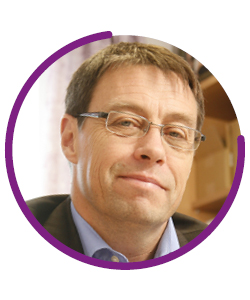
Speaker: Dr Stephen Troup, Scientific Director, IVI UK
Talk Title: 8-Year Snapshot of Insightful Data using RI Witness™: A Necessity for your Lab
Dates/Times: Tuesday 4th July 13:15-13:30
Dr Stephen Troup has worked in the field of clinical embryology for over 30 years, starting in Manchester, where he completed a PhD in male infertility.
Before joining IVI UK, Dr Troup was the Scientific Director of Liverpool Women’s Hospital’s Hewitt Fertility Centres, one of the UK’s largest assisted conception providers.
In addition to dealing with the day-to-day, managerial and research responsibilities of a Consultant Clinical Embryologist, Stephen also has experience as a Scientific Inspector and advisor for the UK Regulator, HFEA.
He has been very involved in clinical embryology as a profession and is the current President of the Association of Clinical Embryologists (ACE). He also holds academic positions as an Honorary Senior Fellow and a Visiting Reader in Reproductive Medicine at the Universities of Liverpool and Edge Hill, respectively.
Stephen describes himself as being committed to the fundamental and ever increasingly acknowledged role of the clinical embryologist within the field of reproductive medicine. He believes firmly in the open and honest sharing of information and ideas, and the importance of keeping an open mind.
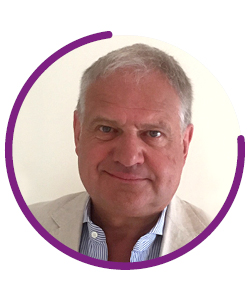
Speaker: Professor Charles Kingsland, Consultant Gynecologist, IVI, UK
Talk Title: Collecting Eggs & Transferring Embryos – Past, Present & Future
Date/Time: Tuesday 4th July, 13:30-13:45
Charles has been a specialist in the field of reproductive medicine for over 25 years and has been instrumental in negotiating NHS funding within IVF across England and Wales.
He qualified in 1982 at the University Hospital of Liverpool and achieved his doctorate in medicine, becoming a consultant in 1993. He held junior doctor positions at hospitals in the North West of England, before spending two years working under Professor Howard Jacobs at the University College and Middlesex Hospitals. He then went on to work with Professor Robert Edwards at the internationally-renowned Bourn Hall Clinic.
Charles founded the Hewitt Fertility Centre at Liverpool Women’s Hospital, now one of Britain’s largest IVF units in 1989. It was there he established a subspecialty program in Reproductive Medicine in 1998. More recently he developed a Masters course in Advanced Fertility Practice for Nurses and Doctors.
Charles has been a fellow of the Royal College of Obstetricians and Gynaecologists since 1999 and is an accomplished public speaker, attending engagements all over the world.
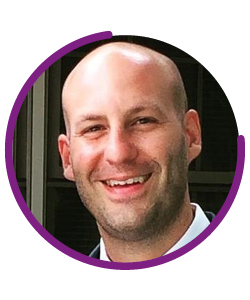
Speaker: Dr Josh Blazek, Director of Engineering, CooperGenomics
Talk Title: Advancements in NIPT: Current Status & Future Directions
Dates/Times: Tuesday 4th July, 16:30-16:45
Born and raised in Indiana, USA, Dr Josh Blazek holds a Bachelors of Arts Degree in Biology from Wabash College and a PhD in Genetics and Developmental Biology from Purdue University.
His thesis work focused on the molecular origin of osteoporosis in a Down’s syndrome mouse model, and a targeted treatment therapy to alleviate the phenotype.
He was Senior Research and Development Scientist at Genesis Genetics before becoming Director of Engineering at CooperGenomics, following their acquirement by the Cooper Companies.
Synopsis: Advancements in technology and bioinformatics have allowed for the expansion of Non-Invasive Prenatal Testing (NIPT), beyond the standard aneuploidy assessment of chromosomes 13, 18, and 21. Complex statistical methodologies now allow for the detection of fetal fraction (ratio of fetal cell-free DNA (cfDNA) to maternal cfDNA), sex chromosome aneuploidy, and in some cases microdeletion syndromes and other autosomal aneuploidies.
As is the case in all clinical diagnostics, not all NIPT technologies are created equal with some offering more comprehensive views of the fetal genome than others. This presentation will highlight the major concepts of the assessment of cfDNA using Next Generation Sequencing. It will also focus on the advancements, limitations, and future directions of NIPT based on the most comprehensive technology currently available in the field.

 My Clinic is in the United States
My Clinic is in the United States My Clinic is in Canada
My Clinic is in Canada